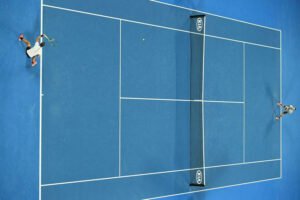What happens with a lack of motivation?
A coach once told me: “I prefer my player to be a past, an animal, who is more motivated than necessary and not to be a disinterested kid who doesn't care about everything. “I prefer to have to lower the revs a little than to have to spend all the time trying to motivate him.” One may or may not agree with that coach's words, but there is no doubt that motivation is a very complex process and that a lack of motivation modifies performance. Let's highlight the word process, because motivation is not an instant, it is not a moment limited in time. Littman defined motivation as the process that determines why a behavior is initiated, maintained, guided, selected, or terminated.
Lack of motivation is a problem that appears both in tennis and in everyday life. Let's return to the coach's words to ask ourselves the following: How to improve the intensity and enthusiasm of a tennis player? There are different psychological techniques that can be used to improve motivation, but in this article I will focus on one of them, which has demonstrated its effectiveness in different achievement contexts such as education, industry, commerce, sports and physical activity: the technique of goal setting.
The central concept of the theory (formulated by Locke, Shaw, Saari and Latham) is that When we subjects have defined and accepted objectives, our behavior is directed more strongly towards achieving them. The objectives act as regulators of action. It is very important, on the one hand, that the objectives are clear, and on the other, that they are neither very simple nor do they go beyond the abilities of the tennis player. In addition, it is interesting to set short and long-term objectives. For example, a player may have the long-term goal of becoming among the top 200 in the world and to do so he sets goals with shorter deadlines, such as passing a qualification or achieving greater consistency in his backhand during training.
Goals provide a path that orders us, pushes us to action and prolongs effort over time. Let's look for challenging paths to mobilize energy and effort.
Littman, R. A. Motives: History and causes, citado en Balaguer, I. Entrenamiento psicológico en el deporte, Ed. Albatros, Valencia, 1994.
Locke, E. A., Shaw, K. N., Saari, L. M., & Latham, G. P. (1981) . Goal setting and task performance: 1968-1980. Psychological Bulletin, 90, 125-152.





